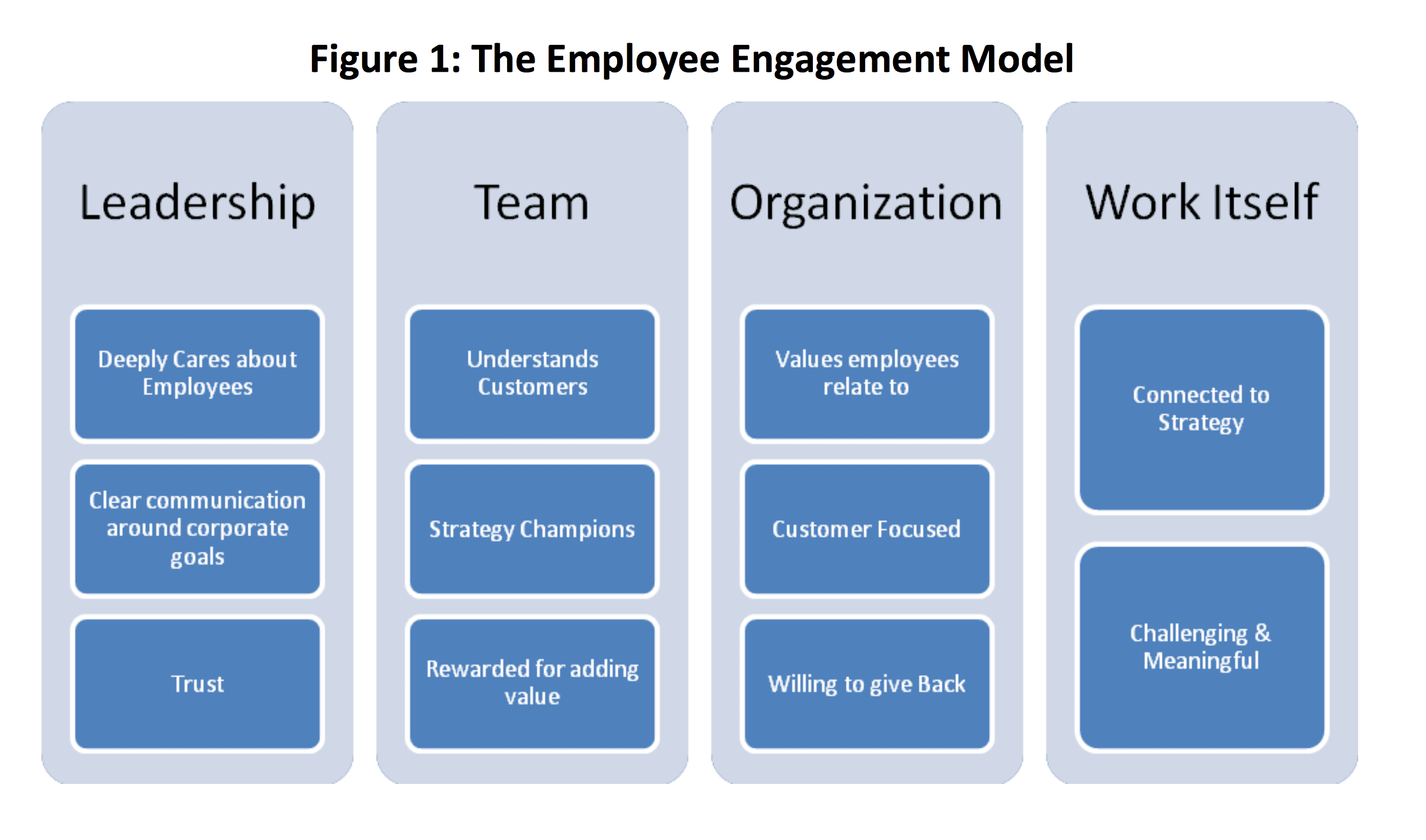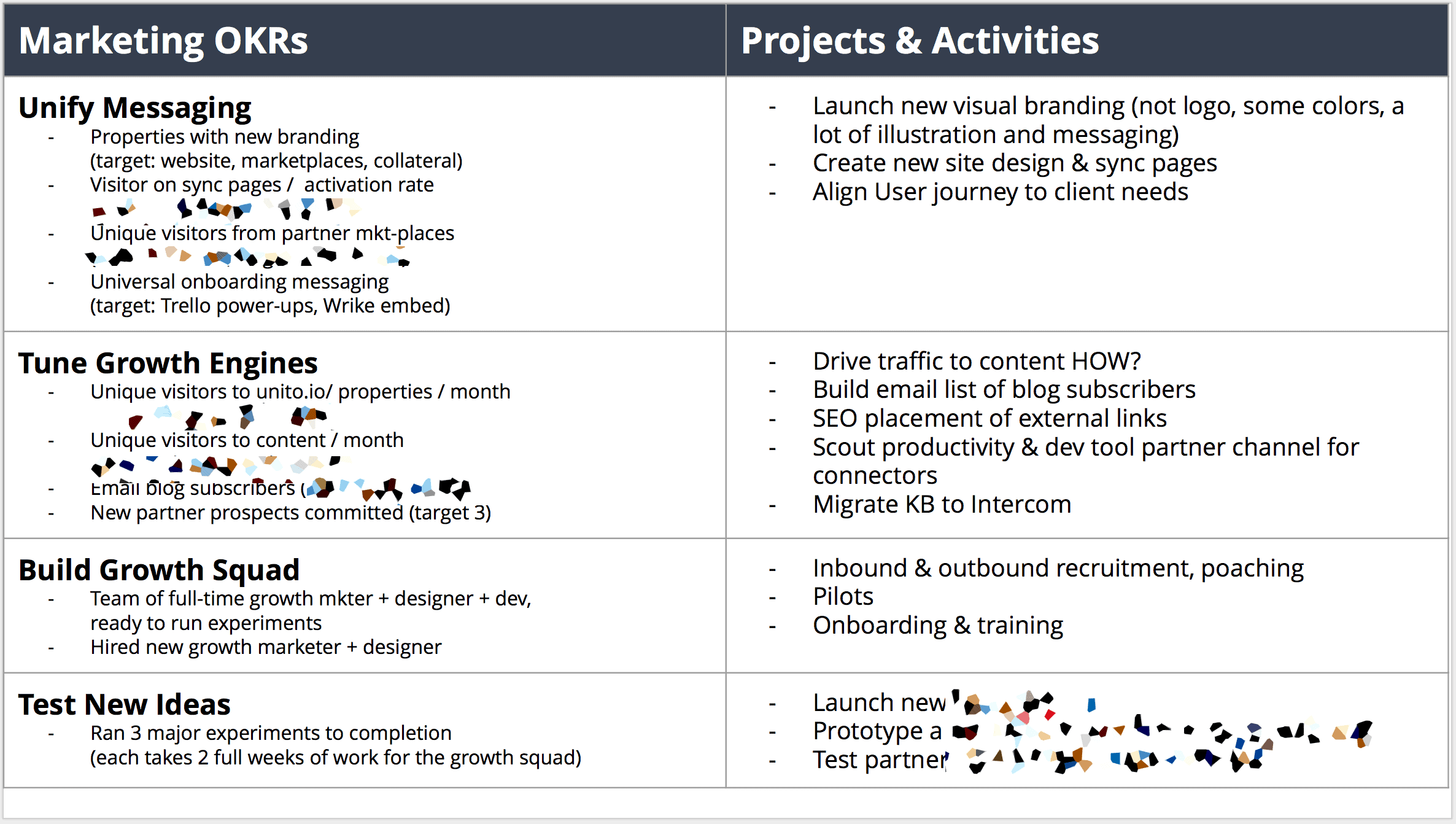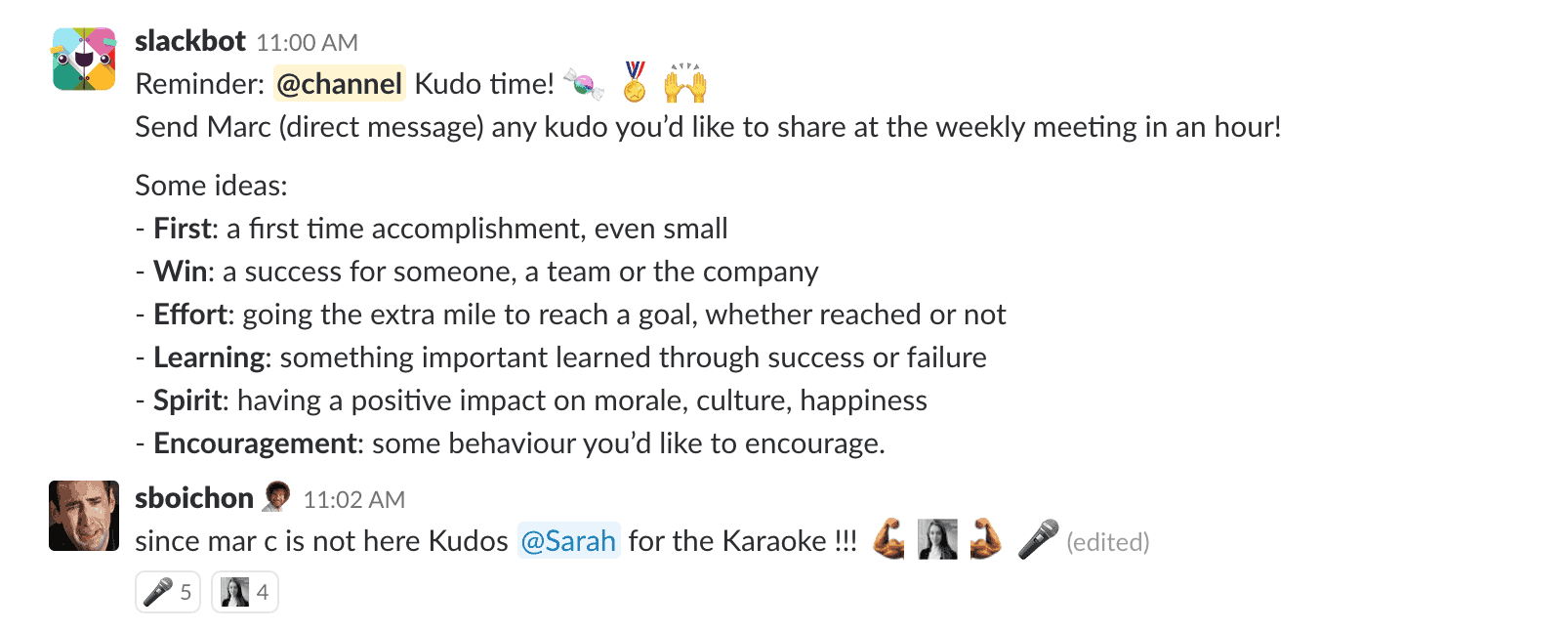The Top 10 Skills For Leading Millennials
Photo by Brooke Cagle on Unsplash
Millennials have grown to be the largest population of working adults in the last few years. That means managers need to have some key skills to be able to work with them.
Leading millennials entails understanding that they’re mobile first, not especially tied to traditional models of work, and want to have a say in their own destinies. Here at Unito, literally everyone in the company other than our founders Marc, John, and Eryk are millennials. We’re a company that’s basically composed of and tailored to millennials, so we’ve learned a few optimal ways of leading them.
Here’s what we do when leading millennials and why it works.
1. Master leading millennials, not managing them
Management is telling people what to do. Leadership is showing people a goal and then giving them the right tools to help them achieve it. Employees are more productive and more engaged in their work when they’re trusted to direct their day-to-day themselves. For millennials economic insecurity is the norm and everyone has a side hustle. This means they are much more likely to leave a job they feel they can’t engage in. While every worker does better when trusted and led effectively, millennials are the ones most likely to bounce when they don’t like the work environment.
2. Show the value of their work
One of the key ways to keep employees of all ages engaged in their work, is to show them how their contribution to the company is also part of their contribution to their own development.

The value of your employees’ work should be more than just the money that they collect. The majority of their waking hours are spent at their job. Presumably, they’re working in a field that interests them, so show them they have an opportunity to grow and learn more about their field by contributing to your organization. When your company interests align with your employees’ interests, you’re all going to pull in the same direction, which is key for leading — and keeping — millennial employees.
3. Life is full of learning opportunities
That said, every job has work that’s less fun than other parts. Every team has projects that succeed, and projects that fail. One of the key determinants of leading millennials is to embrace what you can learn from failure and what you can learn from the parts of the job that you don’t like. Is there a rote task that needs doing and no one wants to do? Figure out how to automate it, how to make it more efficient, or how to do without it at all. Is something wrong with your project and everything is on fire? What can you learn? It’s only a mistake if you do it twice; otherwise it’s just something that you learned from.
4. Transparency is key
Traditional management style usually accepts that those who are higher up in the company’s chain of command know more about what’s going on, and there’s no need to inform those lower down about all of the decisions that are being made. Those lower down then place their trust in their their manager to give them what they need to know. This concept may work for rigid hierarchies like the military, but it likely won’t be effective for leading millennials.
Referring back to the chart up above, the leadership team’s trust in the employees who operate the company is crucial in getting employee buy-in. Trust is also important in letting employees self-direct and determine how to solve tactical problems on the ground more efficiently. Note that by “transparency is key,” we mean within the “circle of trust” that is your company. Outside, you don’t share as much as you do with your team, but inside your team, share as much as you possibly can.
How Unito does it
Here at Unito we have a very clear goal matrix for the whole company, and then we break it down to team level and individual level. We didn’t invent the OKR, but we’ve found it very useful for company alignment. We actually talk through the high level goals every week when we hold our weekly company-wide scrum.

The circle of trust for the company means that we share a lot of hard metrics and upcoming plans inside the company for everyone to see. It also means some of those stats you don’t get to see.
So these are goals for the whole company to hit. Not next month. Not even next year. Further out than that. We break those high level goals into “episodic goals” (an episode at Unito is three months), and break those down even further to departmental goals.
Each department has their goals and every task is related back to one of the company key OKRs.

And from there we have OKRs for each team member for an episode. We talk through how their tasks align to those OKRs, and review the tasks themselves every week in a team level “sync.” Team members are empowered to problem solve in their areas of responsibility. Doing so allows them to figure out how to have the most impact on key metrics attached to their tasks.
By being transparent and aligning the company, teams, and individuals on common goals, we help our team members solve the right problem, instead of doing what we tell them to.
5. Equality in practice
Millennials have grown up in an era where leaders, celebrities, role models, and even their parents share their life stories publicly on the Internet. Everyone wants to be human and relatable, and to be seen as flawed and real. As a direct result of this, they prefer little mystery or distance between people at different levels of a company. It’s hard to expect, then, that Joe from Sales who posted videos of himself wiping out while water skiing last week should be inherently given more respect and belief in his opinion than anyone else in his team just because he’s older. And companies are starting to get that to some extent. They talk about open door policies and free flow of information between teams. But often they don’t deliver on those promises.
Equality in practice can be accomplished in a number of ways. One of the big ways we incorporate equality when leading millennials at Unito is by internally publishing the salary matrix for every single role in the company. Anyone who is performing the same work as someone else in the team can be very sure that he or she is compensated the same as that teammate. And he or she can also see what anyone else in the company is making based on their role and seniority as well.
6. The human touch
Employees are people, too. Actually, they’re people first and foremost; their job is part of who they are but it’s a long way from being everything about them. Having that human touch means that the company can talk about and care about the fact that their employees are people, too. One example of how leading Millennials works at Unito is that we have weekly task-focused team meetings and then monthly 1:1s focused on longer term goals and personal development. Here’s a template we use when managers talk to their team on their 1:1s.
- What’s been going well?
- What’s been going poorly?
- Anything that could help you do better work?
- What thing do you most wanna do in the next 30 days?
- Goals
- Your long term professional ones?
- What are your long term personal goals?
- How is Unito helping you with them?
When people talk about what they want to accomplish in the next 30 days, they will often talk about work stuff. That said, we’ve had people talk about wanting to go to the gym, finish a coding class, or improve their French. There are a number of changes we’ve introduced at Unito in part to help support our employees as they try to improve themselves outside of work.
7. New tech for new jobs
Given that we’re a startup, it shouldn’t shock you that we’re pretty up to date on the modern collaboration software stack. We make heavy use of Google Docs, Slack, Asana, Trello, Wrike, Jira, Invision, GitHub, Dropbox, and so on. It would be silly to insist that people use legacy technology just because the leadership team is comfortable with it. This can be hard to do at more established companies, which is a big part of why Unito exists at all, but we go beyond that. Every new hire at the company tells us what it is that they need to do their best work. We’re largely a Mac-powered company, but four of us use Windows or Linux instead. Everyone finds their best workflow.
Equipment, as a fraction of the cost of the employee and as a fraction of the value that an employee brings, is a tiny, tiny number. Expecting that someone deals with a constant source of aggravation (a tool they hate) that’s a part of their fundamental day-to-day work is silly. When leading millennials, use the best tech for the job at hand, whatever it is.
8. Nurture enthusiasm
There are a lot of days at any company when a project is slogging along and it’s hard to see how this is going to end well. When leading millennials, it’s important to take time, even in the middle of a big project that’s three months late and hugely over budget, to celebrate wins and nurture enthusiasm. There are a number of ways we work on that at Unito — and it’s something that all of us are constantly trying to get better at — but an easy way to nurture enthusiasm is to make sure that you ask people to share reasons to celebrate. Here’s an example from our company Slack:

We have a weekly reminder right before our Monday team meeting: tell our CEO what someone’s done that’s a win for them or for you, and then we’ll talk about it and celebrate it together. In this particular case, Sylvain is giving Sarah kudos for planning a company karaoke evening.
9. Build processes, not policies
A process is a machine which is designed to route a given input to a given output. A policy is a rule which tells people what to do. We’ve found it’s much more flexible to think of the systems that we have set up to determine who our company is if we approach them as a process. Think of the end goal you want to achieve, and then refine the process to get that result. Do you want to celebrate wins in your company? Start a weekly reminder to ask folks to submit kudos on their own to the CEO. Do you want to encourage professional development in your team? Give them a wellness spending account and let them choose what self-improvement they want to make in themselves!
If we find that, for example, the weekly kudos reminder doesn’t do the job of helping us celebrate our wins internally, then we should go back and fix the process to make it drive the end goal. Instead of making a policy where, “People tell Marc when someone did something cool,” we explained that, “We want to do a better job celebrating when we achieve a victory” and then let our team tell us if what we’re doing is working to that end.
10. Trajectory matters
The company is headed a certain way. Employees are also headed a certain way. Making sure to lay out that Unito’s goals and theirs are aligned, and revisit that in regular discussions, is a key way to keep everyone pulling for the same goals.
In our case, our way of leading millennials involves aligning on a few key areas. One of the big ones is overall company MRR. When you have money, as a company or a person, everything else is easier. In order to keep the company aligned, we share our financial KPIs every month. As I already mentioned, we also share our compensation matrix for every role in the company. Part of sharing that compensation is that we also give everyone in the company a pay raise as we hit key revenue milestones.
As we all achieve our fundamental wins together, we all benefit from our trajectory. And we clearly show our team how their work to help us achieve that trajectory will be key in helping them achieve a win as well.
If you can master these skills for leading Millennials, you’ll have a much better time attracting and retaining the kind of younger talent that will help you go far.


